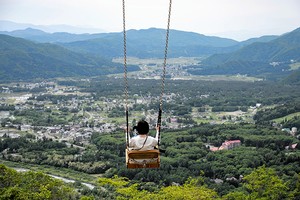THE ASAHI SHIMBUN
March 13, 2023 at 18:31 JST
Most Japanese commuters continued wearing face masks on March 13, the day the central government ended its three-year request for protective measure against COVID-19.
At JR Shinagawa Station in Tokyo at 8 a.m., only about one in 50 commuters was maskless.
A 26-year-old Tokyo resident said he took off his mask when he got off a train “because I wanted to change the depressing mood.”
He said he was surprised to see “so many people still wearing mask and wasting a new day of freedom.”
A company employee in his 50s who lives in Saitama Prefecture decided not to wear a mask.
“At izakaya, where everybody talks loudly, people take off their masks,” he said. “But why do they wear it at train stations where nobody speaks? It is a mystery to me.”
But he said he will keep a mask in his pocket.
“I will be careful when I cough, sneeze or have a conversation,” he said.
One reason cited for the continued mask wearing in Japan is peer pressure.
“I want to take it off but I still worry about how others may feel,” said a 34-year-old female company employee.
The government said individuals from now can decide on their own when to wear a mask.
But on the morning of March 13, an announcement at Shinagawa Station said, “Please keep your conversation to a minimum.”
“When society is maintaining the status quo, I don’t know if I should make a judgment as an individual,” she said.
Prime Minister Fumio Kishida showed up at the prime minister’s office on the morning of March 13 without a mask. It was the first time for him to do so since he became prime minister in October 2021.
“I think there will be more occasions where I do not wear a mask,” he told reporters.
Kishida also noted that the government continues to ask people to wear masks when visiting nursing homes and other places with people at a high risk of developing severe symptoms from COVID-19.
The health ministry, which is in charge of the government’s COVID-19 measures, has notified its employees about the easing of the mask-wearing policy.
On March 13, around 70 percent of the 50 or so employees at the ministry’s human resources department were maskless.
But the new protocol is bringing nothing but worries to a woman in her 60s who owns a cafe in Tokyo.
She is allergic to chemical substances, so she has avoided COVID-19 vaccinations, fearing an adverse reaction.
“Everybody has a different opinion, and I know it is important to respect that,” she said. “But I hope they think about the fact that there are those who want to receive an immunization shot but can’t, and a novel coronavirus infection can be deadly to them,” she said.
A 17-year-old female high school student said she “can’t ever think of going out without wearing a mask.”
She said when she was in junior high school and took a picture with her friends, she thought only her face was ugly.
When she entered high school during the pandemic, wearing a mask was already the norm, and she has rarely shown her unmasked face to her high school friends.
Even during school lunch time, she does not take off her mask.
Rather, she pulls a corner of the mask with her left hand to make space for her food.
Under the new protocol, she feels her friends may bully her and talk about her behind her back once they see her maskless face.
(This article was compiled from reports by Natsuki Edogawa, Midori Iki, Hajime Ueno and Mirei Jinguji.)




















A peek through the music industry’s curtain at the producers who harnessed social media to help their idols go global.
A series based on diplomatic documents declassified by Japan’s Foreign Ministry
Here is a collection of first-hand accounts by “hibakusha” atomic bomb survivors.
Cooking experts, chefs and others involved in the field of food introduce their special recipes intertwined with their paths in life.
A series about Japanese-Americans and their memories of World War II